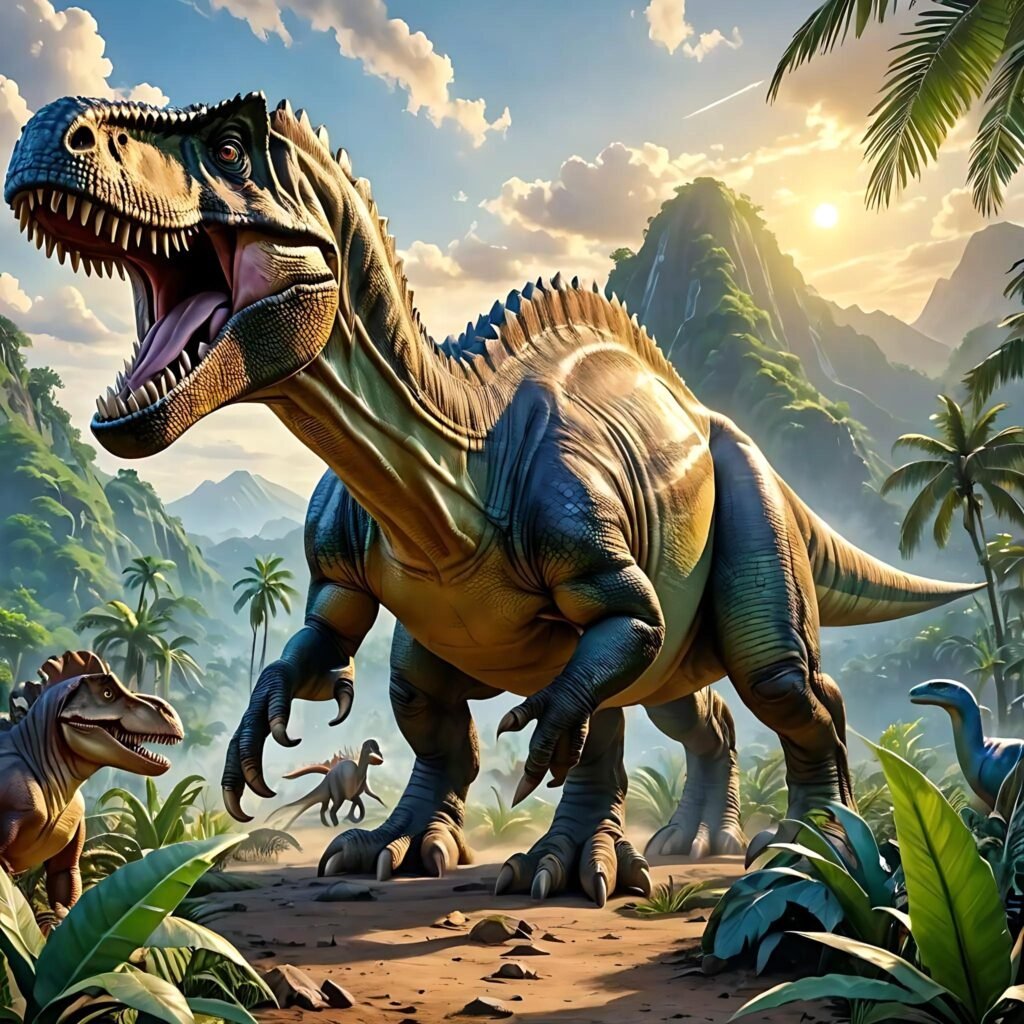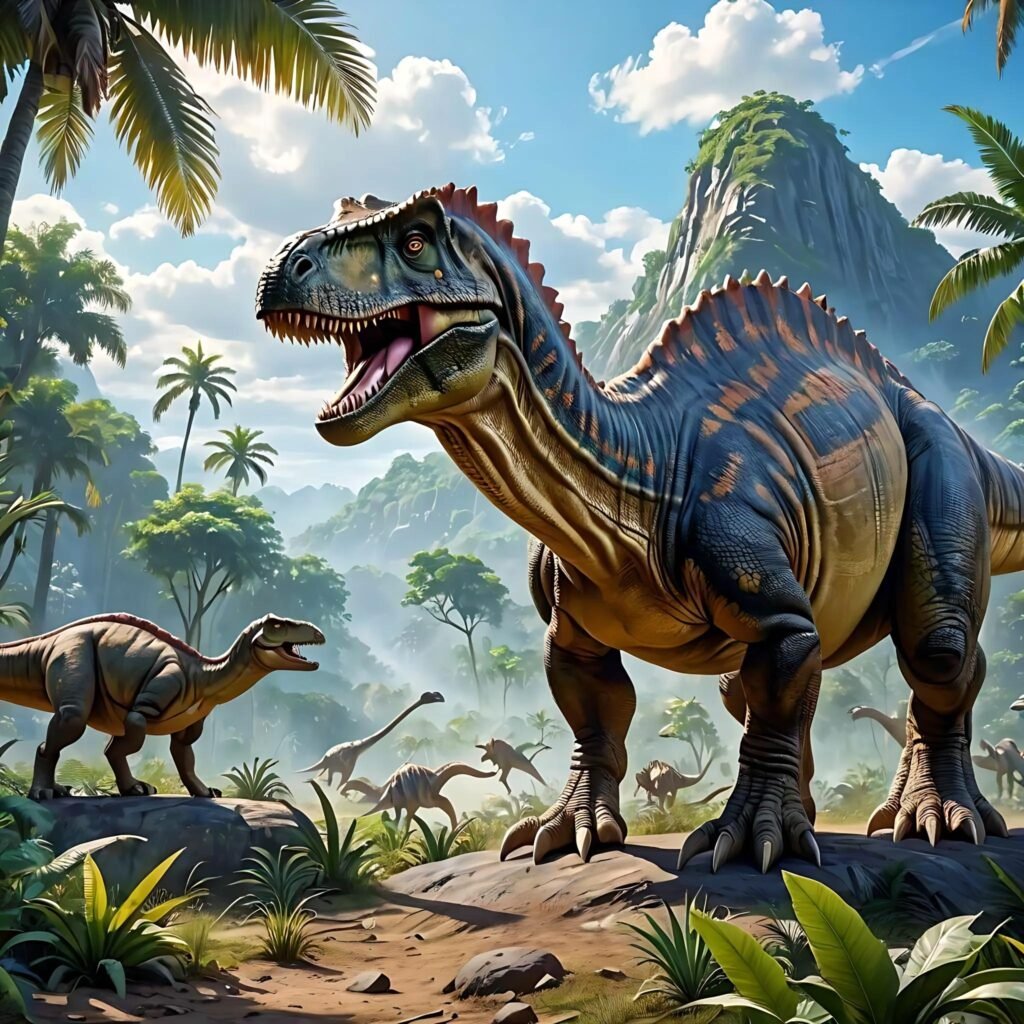Introduction:

The idea of dinosaurs reappearing on Earth is a captivating concept that has fueled countless imaginations through books, movies, and speculative discussions. While it remains firmly in the realm of science fiction, contemplating the hypothetical scenario can offer intriguing insights into various scientific, ecological, and societal implications. In this blog post, we will delve into the potential consequences of dinosaurs making a comeback in the modern world.
1. Ecological Disruption:
The sudden reintroduction of dinosaurs into Earth’s ecosystems would undoubtedly cause significant disruptions. These ancient creatures, which once ruled the planet millions of years ago, occupied various ecological niches and played crucial roles in their respective habitats. Their reappearance would likely result in competition with existing species for resources such as food, territory, and mates.For instance, large herbivorous dinosaurs like the Brachiosaurus or Triceratops would consume vast amounts of vegetation, potentially altering landscapes and affecting plant populations. Meanwhile, carnivorous dinosaurs such as the Tyrannosaurus Rex or Velociraptor would introduce predation pressure on modern animals, potentially leading to population declines or shifts in behavior.
2. Conservation Challenges:
The sudden emergence of dinosaurs would pose unprecedented challenges for conservation efforts. Existing conservation strategies and protected areas may prove inadequate in safeguarding both modern and resurrected species. Conservationists would need to adapt quickly to address the unique needs and threats posed by these prehistoric creatures.Moreover, the ethical considerations surrounding the conservation of resurrected dinosaurs would be complex. Questions regarding their rights, welfare, and interactions with humans would need to be carefully addressed. Balancing the preservation of biodiversity with the management of potentially dangerous or invasive species would require innovative approaches and international cooperation.
3. Scientific Discoveries:

The return of dinosaurs would offer unparalleled opportunities for scientific exploration and discovery. Researchers would have the chance to study these ancient creatures up close, unlocking valuable insights into their biology, behavior, and evolutionary history. Advanced technologies such as genetic sequencing, imaging, and behavioral observation could provide unprecedented levels of detail and understanding.
Additionally, the coexistence of dinosaurs and modern animals would provide unique opportunities for comparative studies, shedding light on evolutionary processes and ecological dynamics. Scientists could investigate questions related to interspecies interactions, adaptation, and coevolution, advancing our knowledge of life on Earth and its complexities.
4. Socioeconomic Impact:
The reappearance of dinosaurs would have far-reaching socioeconomic implications, affecting various sectors such as tourism, agriculture, and infrastructure. Regions where dinosaurs roam would likely experience a surge in tourism as people flock to witness these living relics of the past. However, managing visitor safety and mitigating potential conflicts between humans and dinosaurs would be paramount.
Furthermore, agricultural practices may need to be adapted to account for the presence of large herbivorous dinosaurs that could damage crops and disrupt food production. Measures to protect livestock and mitigate human-dinosaur conflicts would be essential for ensuring the stability of rural economies and food security.
5. Cultural and Psychological Effects:
The return of dinosaurs would undoubtedly captivate the collective imagination and inspire awe and wonderment worldwide. Cultural depictions of dinosaurs in art, literature, and media would proliferate, shaping societal perceptions and narratives surrounding these iconic creatures. Museums, educational institutions, and media outlets would play a crucial role in interpreting and disseminating information about the new era of dinosaur existence.
On a psychological level, the resurgence of dinosaurs could evoke a mix of fascination, excitement, and apprehension among the public. While many would embrace the opportunity to witness living dinosaurs and explore the mysteries of the past, others may feel unease or fear regarding the potential dangers posed by these ancient giants.
Conclusion:
In contemplating the hypothetical scenario of dinosaurs reappearing on Earth, we are compelled to consider a wide range of scientific, ecological, societal, and ethical implications. While such an event remains firmly in the realm of speculation, exploring the potential consequences allows us to appreciate the complexity and interconnectedness of life on our planet. Whether viewed as a thought experiment, a cautionary tale, or a source of inspiration, the idea of dinosaurs returning to Earth continues to fascinate and provoke thought in the collective consciousness of humanity.
Rabindranath Tagore : A Beacon of social Reform And Enlightenment
Rabindranath Tagore: A Renaissance Man Ahead of his time
The road to NEET success : when to start preparing for the exam
Navigating the pathways: A comprehensive between Neet and Jee Exam